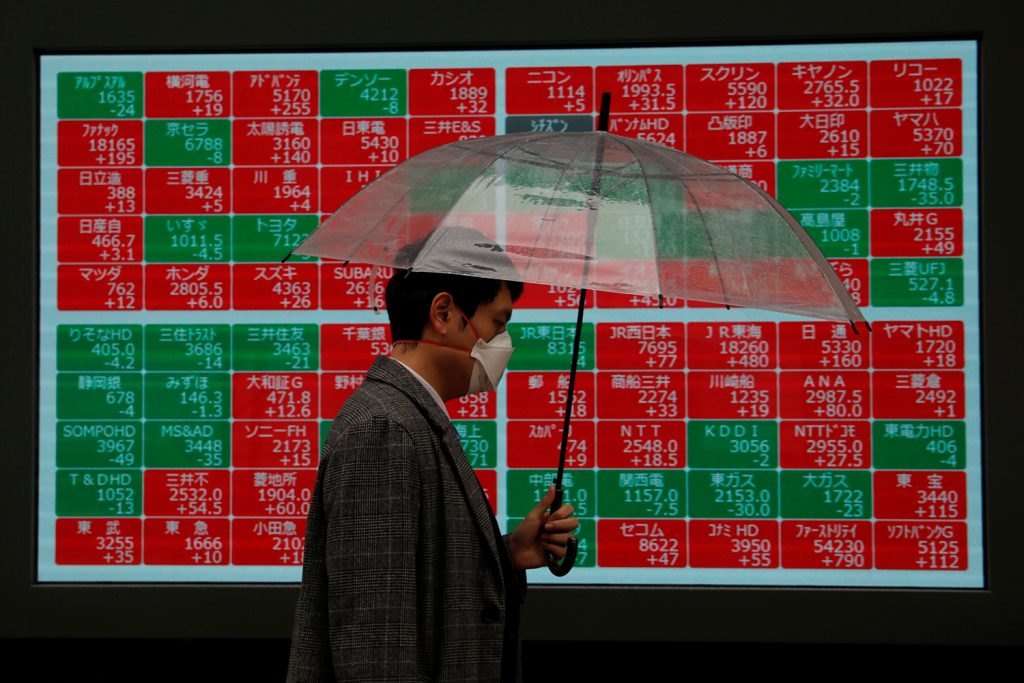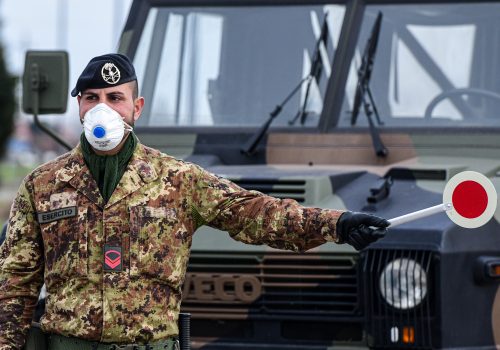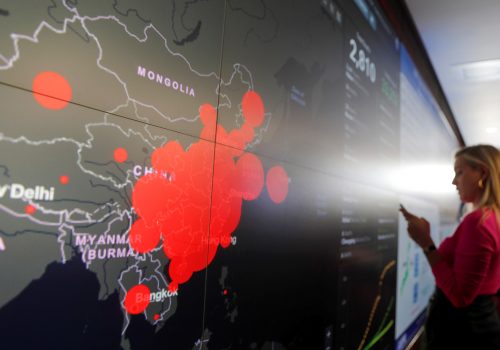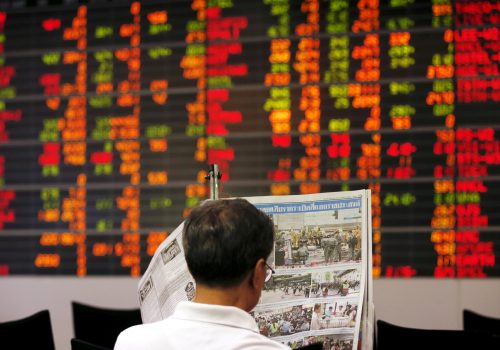Having infected more than 90,000 people and causing more than 3,000 deaths, COVID-19—the respiratory disease caused by the novel coronavirus SARS-CoV-2—seems to be spreading in local communities (people infected without apparently having traveled to China or in contact with those who did) in many countries around the world; including Italy, Iran, South Korea, and the United States. Moreover, many countries in the Southern Hemisphere also have cases of infections—probably negating the hope that rising temperature in the Spring and Summer in the Northern Hemisphere could hold the coronavirus in abeyance like other seasonal flu viruses.
As a result, even though the number of new cases seems to be declining in China, especially outside the epicenter of Wuhan, Hubei Province, the risk of continued spread remains serious. New travel restrictions and screening requirements for travelers have been imposed by several countries and will disrupt economic activity on top of the severe interruptions in China over the past two months. All in all, the economic impact of COVID-19 could be more substantial than expected so far.
This risk has been demonstrated by the collapse of China’s Purchasing Managers Indexes (PMI) for February—the manufacturing PMI fell to 35.7 and non-manufacturing PMI to 29.6, both well below market expectations as well as the previous lows posted during the 2008-09 financial crisis. These data suggest a sharp fall in China’s first quarter growth; and given the country’s 17 percent share of the global economy, have prompted the Organisation for Economic Co-operation and Development (OECD) to cut its 2020 forecast of global economic growth from 2.9% to 2.4%—bordering on a recession (defined as global growth below 2.5%). If there was “a longer lasting and more intensive coronavirus outbreak,” the OECD says, global economic growth could slump to 1.5%. Reflecting these concerns, global equity markets have fallen sharply in recent weeks.
At this juncture, it is important that Group of Twenty (G20) leaders rise to the occasion like they did at the Pittsburgh G20 Summit in 2009 to articulate a joint plan of action to address the crisis. This should contain measures to intensify scientific cooperation to develop a vaccine and coordinated economic steps to stabilize the global economy. However, G20 leaders face more difficult and intractable challenges this time around compared to eleven years ago.
Subscribe to The future is here: A guide to the post-COVID world
Sign up for a weekly roundup of top expert insights and international news about how coronavirus is reshaping international affairs.

To begin with, political and economic tensions over the past three years, driven by the US-China trade war, have weakened countries’ willingness to cooperate. More importantly, eleven years after the financial crisis, the policy arsenal to deal with crises—in this case reducing both the supply and demand side of the growth equation—remains largely depleted. Monetary policies are still being relied on to sustain a subpar recovery, with interest rates at historically low levels and central bank balance sheets already boosted to outsized proportions. Additional monetary accommodation can help, but probably not very significantly.
This leaves fiscal stimulation as the main tool to revive economic growth. The scope for a “big bazooka” fiscal package, however, is also limited by the record level of global debt—estimated by the Institute of International Finance (IIF) to be around $253 trillion or 322 percent of global GDP. Low interest rates can keep the debt servicing burden bearable for the present, but a continued buildup in debt will eventually undermine investor confidence, leading to a debt crisis. As a result, any fiscal stimulation plan must be carefully crafted, targeting investment in key infrastructures to help raise productivity of the economy so as to create the wherewithal to repay the debt.
In short, as the novel coronavirus crisis builds and threatens a global economic recession, and the need for global cooperation is most acute, it remains to be seen if world leaders can step up and provide effective leadership to mitigate the risk. The G20 may have missed an important opportunity at its finance minister meeting in Riyadh, Saudi Arabia on February 22-23 to supply this leadership; promising only to “enhance global risk monitoring, including the recent outbreak of COVID-19” in its communique. Judging by the bickering and mistrust displayed in the past two months, it may take a while for such cooperation to materialize.
Hung Tran is a nonresident senior fellow at the Atlantic Council, and former executive managing director at the Institute of International Finance (IIF).
Further reading:
Image: A visitor wearing protective face mask, following an outbreak of the coronavirus, walks past in front of a stock quotation board outside a brokerage in Tokyo, Japan March 2, 2020. REUTERS/Issei Kato



